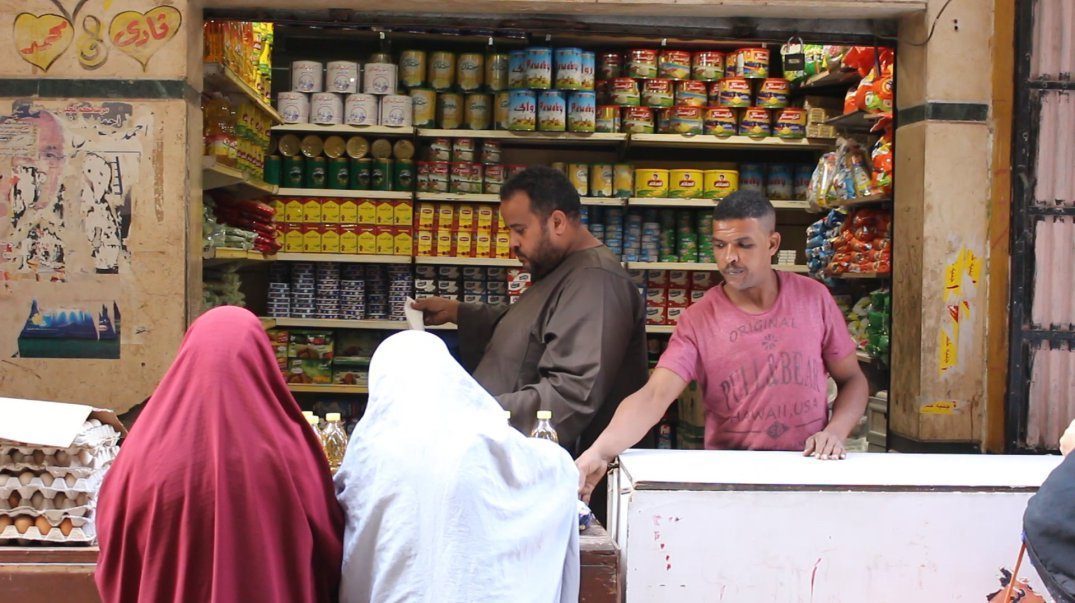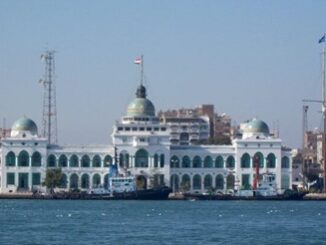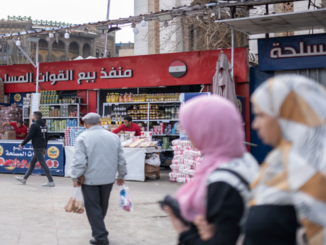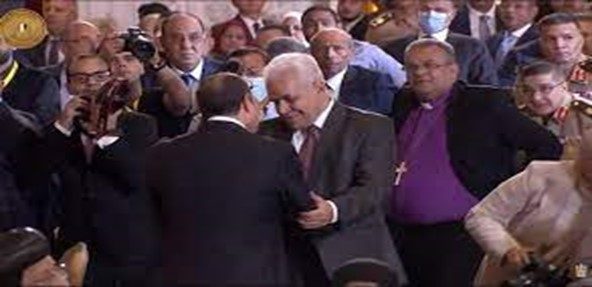
A Geneva-based watchdog has monitored release of 332 prisoners, but at the same time it has also monitored 950 violations within the arbitrary deprivation of liberty since April when Sisi announced launch of national dialogue.
The Committee for Justice has issued an assessment paper in attempt to explore the mechanisms of the presidential pardon committee in Egypt since Sisi’s announcement of launching the so-called national dialogue in April.
In a situation assessment paper to highlight the operation mechanisms of the presidential pardon committee in Egypt, that was re-activated after Sisi’s announcement of launching the so-called national dialogue, the Committee for Justice, an independent association for the defense of human rights based in Geneva, Switzerland, has monitored the release of only 332 prisoners.
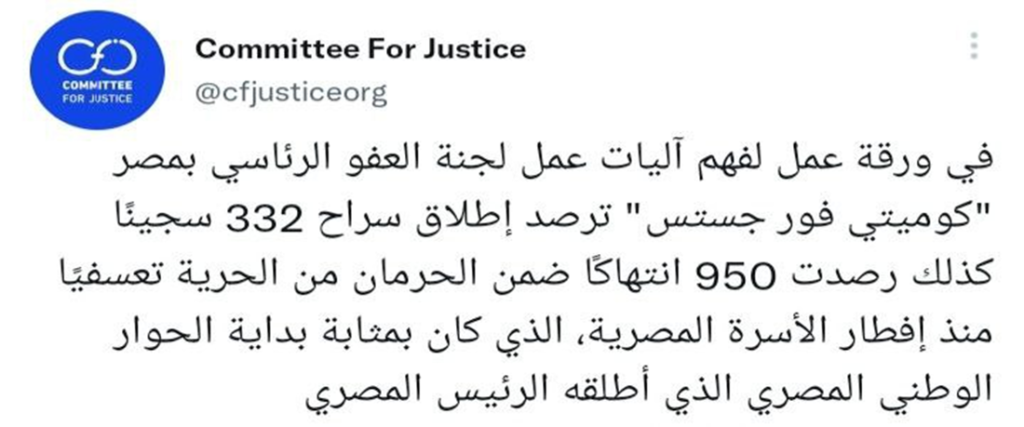
Meanwhile, the Committee for Justice has also monitored occurrence of 950 human rights violations within arbitrary deprivation of freedom, since the Egyptian Family Breakfast which marked announcement of the launch of the national dialogue by Egypt’s Sisi last April.
On the other hand, the Geneva-based watchdog indicated that it had monitored about 950 violations within the arbitrary deprivation of liberty, including 53 violations as part of the crime of enforced disappearance, as well as 7 incidents of torture inside prisons and places of detention, 22 violations within the poor conditions of detention, and 10 within the intentional deprivation from health care, and finally, 16 violations in the incidents of death inside detention facilities.
The Committee for Justice team, with the assistance of the victims’ families, documented the persistence of poor conditions of detention places, and the denial of health care in prisons and detention centers against at least 20 detainees in several locations, including; Tora prison complex, Al-Qanater prison for women, Wadi Al-Natrun prisons, and dozens of other detention places.
The CFJ stressed that such contradiction highlights that, in exchange for some releases of prisones to whiten its image, itthe regime continues to abuse prisoners and hold more opponents hostage for years under politicized judicial rulings, citing the ruling on former presidential candidate and head of the Strong Egypt Party. Dr. Abdel Moneim Aboul Fotouh, who was sentenced to 15 years in prison; and his deputy, Mohammad al-Qassas and Moaz al-Sharqawi, to 10 years in prison, on charges related to the notorious anti-terrorism law.
The Committee for Justice also confirmed that it closely monitors the current faltering political and economic situation in Egypt, and views it as the only logical legacy for many years, during which the regime has provided nothing but repression and the absence of politics, while upholding the logic of one opinion at the expense of the values of rights, freedoms, justice and good governance.
The CFJ also stated that the failure of the narrative of “security in exchange for repression” under the pretext of combating terrorism, led Sisi to resort to summoning the political parties that has has long marginalized and deliberately removed from the political scene to share responsibility with him about what happened.
The organization also expressed its hope that the efforts to release political detainees and prisoners of conscience – even if it was a kind of “maneuvering” by the ruling regime, would not stop, adding that “releasing one prisoner is definitely a political and human rights gain,” renewing its call to the concerned authorities to adopt a less contradictory and clearer policy towards the limits and powers of the operation of the presidential pardon committee, in favor of more releases of the prisoners of conscience that the regime had long denied.

